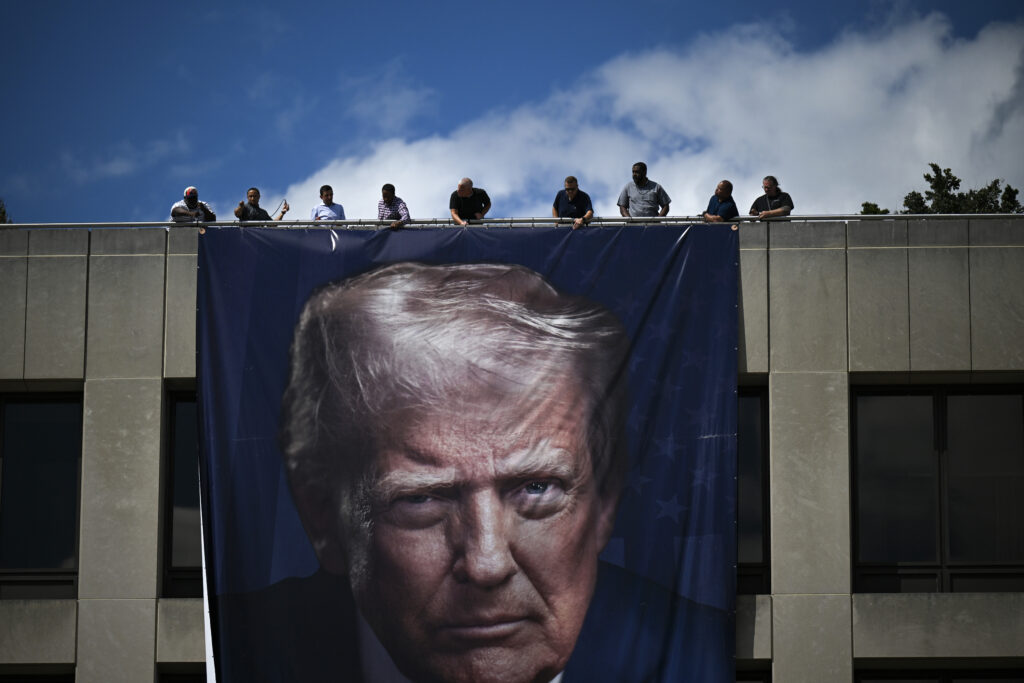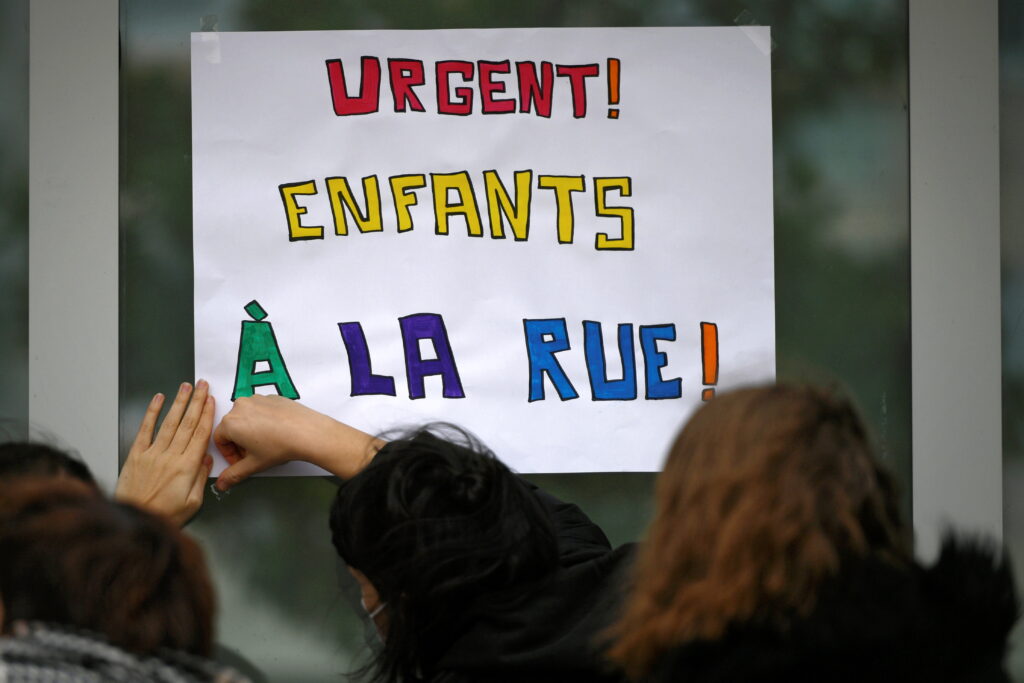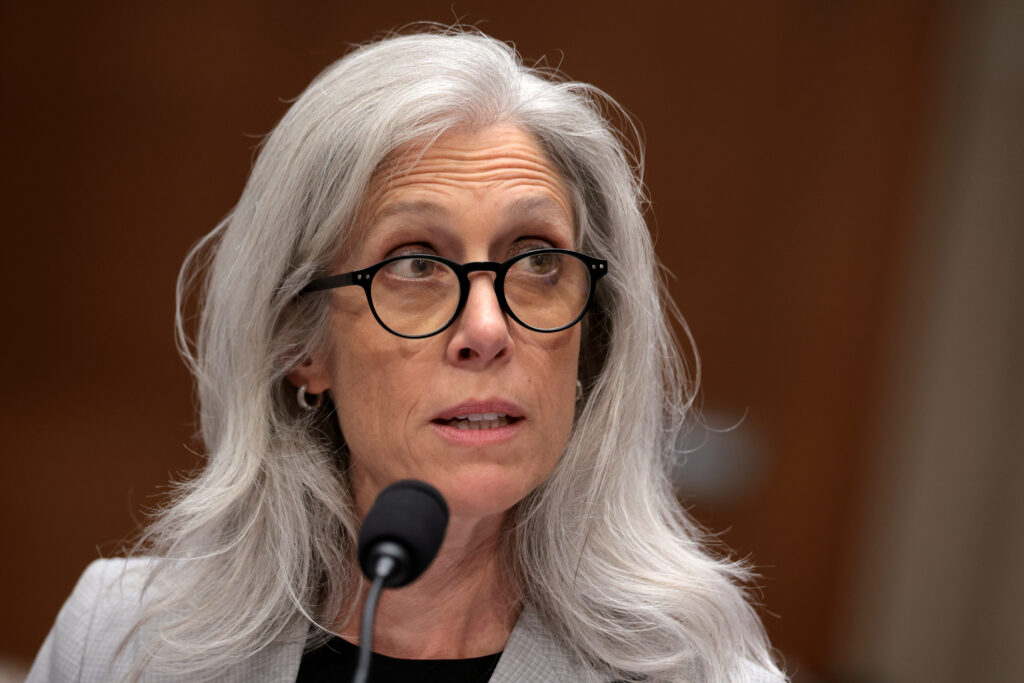Trump grave son pouvoir dans le marbre, l’or et l’ostentation
Entre sa future salle de bal à la Maison Blanche et ses projets d’embellissement de la ville de Washington, Donald Trump, qui se rêve en président-bâtisseur, a lancé des chantiers d’une envergure inédite.Le “chic dictateur”. Voilà comment le critique britannique Peter York a décrit le style prisé par le président américain.”Je suis doué pour construire des choses”, a lancé l’ancien promoteur immobilier, qui a écrit son nom en lettres dorées sur moult hôtels de luxe, en annonçant la construction d’une énorme salle de bal à la Maison Blanche.Ce chantier estimé à 200 millions d’euros, que le milliardaire de 79 ans s’est engagé à financer seul s’il le faut, sera le plus ambitieux depuis le début du XXème siècle au 1600 Pennsylvania Avenue.Depuis la dernière grande rénovation menée entre 1948 et 1952, sous Harry Truman, les présidents successifs se sont contentés de touches personnelles discrètes.- Cossu -Aucun n’a altéré le style cossu, sans ostentation de la Maison Blanche, censé représenter la simplicité de la République américaine, à l’opposé des fastes des monarchies européennes d’antan.Depuis son retour au pouvoir en janvier, Donald Trump a donné au bâtiment les accents clinquants de sa propriété la plus connue, celle de Mar-a-Lago en Floride.Il a changé la bucolique roseraie en patio couvert de grandes dalles claires, meublé de tables et chaises en ferronnerie blanche, surmontées de parasols à rayures jaunes et blanches – répliques du mobilier de Mar-a-Lago. La raison invoquée est qu’ainsi les femmes portant des talons ne s’enfonceront plus dans la pelouse.L’ancien animateur de téléréalité y a fait installer une sono puissante et s’amuse parfois à passer ses tubes préférés à plein volume. Les journalistes de l’AFP à la Maison Blanche ont ainsi entendu récemment, en pleine journée, les échos de “YMCA”.Quant à la décoration rutilante du Bureau ovale, chargé de dorures et tableaux, elle donne lieu régulièrement sur les réseaux sociaux à des montages photo “Avant/Après” qui ravissent ses partisans autant qu’ils horrifient ses opposants.- “Loge de catcheur” -La pièce “en avait besoin”, a récemment affirmé le président américain. Son homologue sud-coréen Lee Jae-myung, reçu lundi, a jugé poliment que l’ensemble, “beau et brillant” symbolisait le “nouvel avenir de prospérité” de l’Amérique.La rock star Jack White a au contraire comparé le célèbre bureau à “une loge de catcheur tapageuse.” L’ambition esthétique du président américain dépasse les jardins de la Maison Blanche – où il a planté deux gigantesques drapeaux américains – pour embrasser toute la ville de Washington.Donald Trump veut “embellir” la capitale fédérale, où il a déjà repris le contrôle du maintien de l’ordre, en déployant la Garde nationale.”Il s’agit de mise en scène toujours plus forte du pouvoir”, explique à l’AFP Peter Loge, professeur de communication à la Washington University.- “Continuation” -“Il met son nom sur des bibles et des casinos, c’est donc une continuation logique. Sauf qu’il joue désormais avec des vies humaines, avec la réputation des Etats-Unis et la culture démocratique”, ajoute-t-il.Plus mesuré, le président de l’Association historique de la Maison Blanche, Stewart McLaurin, note que tous les travaux d’envergure menés dans le passé à la Maison Blanche avaient été critiqués “pour leur coût, leur nature et leur pertinence”.”Beaucoup de ces changements sont toutefois aujourd’hui partie intégrante” de l’édifice, écrit-il dans un essai publié en juin.Le président américain, que l’on sent réellement captivé par ces chantiers, entend superviser le moindre détail, des colonnes du Kennedy Center, grande salle de spectacle de Washington qu’il veut rénover, au bitume des rues de la capitale.Il vante son expertise dans tous les domaines touchant à la construction, y compris les espaces verts.- Photo géante -“Ce que nous allons également faire, c’est rénover vos parcs (à Washington). Je suis très bon pour tout ce qui concerne l’herbe, parce que je possède des complexes de golf un peu partout. J’en sais plus sur l’herbe que n’importe qui”, a-t-il affirmé récemment. Ses ministres se sont mis au diapason. Celui des Transports, Sean Duffy, a annoncé mercredi prendre le contrôle de la gare centrale de Washington pour lui “rendre sa beauté”.Celle du Travail a fait installer sur ses murs une immense photographie du président américain.”Monsieur le président, je vous invite à venir voir votre beau et grand visage sur une bannière devant le ministère”, a lancé Lori Chavez-DeRemer mardi.







